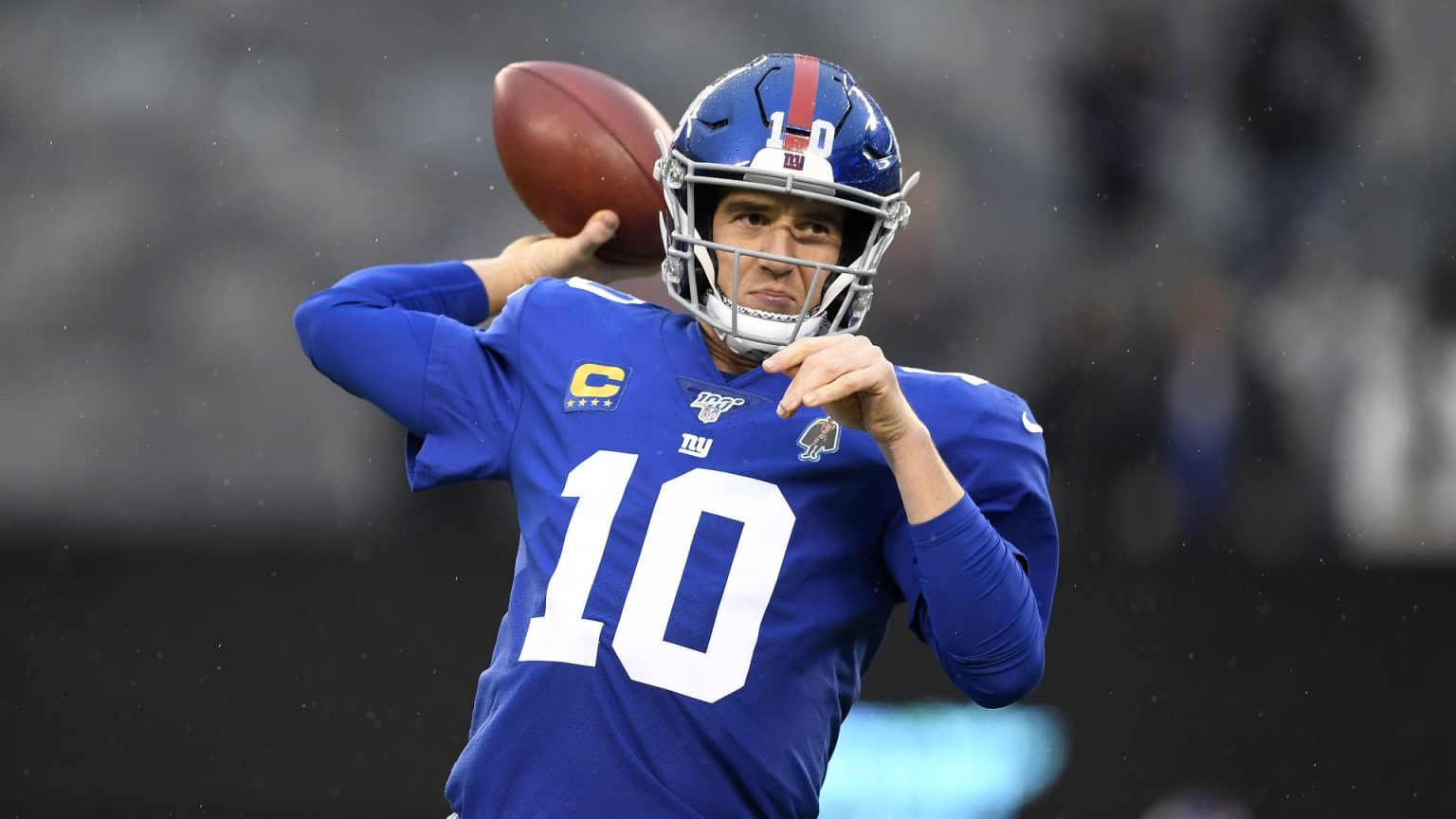Former New York Giants quarterback Eli Manning has decided against purchasing a minority stake in his former team, citing prohibitively high valuation as the primary reason. In an interview with CNBC Sport, Manning expressed his reluctance due to the skyrocketing costs associated with NFL team ownership, particularly as valuations climb sharply across the league. The decision comes amid a changing landscape of NFL ownership, where interest in minority stakes is increasingly competitive, and valuations are reaching record highs.
| Article Subheadings |
|---|
| 1) Manning’s High Price Tag Dilemma |
| 2) Historical Context of NFL Team Valuations |
| 3) Complications in Team Ownership |
| 4) The Giants’ Ownership Structure |
| 5) Continuing Involvement with Giants |
Manning’s High Price Tag Dilemma
In a candid interview, Eli Manning disclosed that the costs associated with acquiring a minority stake in the New York Giants were simply too high, leading him to step away from the opportunity. Manning noted that with a 1% stake valued at a staggering $10 billion, the numbers became overwhelmingly large. “Basically, it’s too expensive for me,” he expressed, highlighting the financial barriers that many individuals, regardless of their wealth, face when considering ownership in elite sports teams. This sentiment reflects a broader trend of rising valuations in the NFL, which have almost doubled in recent years.
Historical Context of NFL Team Valuations
The upward trajectory of NFL team valuations has been remarkable. Just for context, in September, CNBC reported that the Giants were valued at $7.85 billion, making them the fourth most valuable team in the league. This rise parallels several high-profile transactions; for instance, the Philadelphia Eagles sold a minority stake at a valuation of $8.3 billion, and the San Francisco 49ers sold a 6.2% stake at a price exceeding $8.5 billion. Ownership stakes have become extremely lucrative, and the financial clout of NFL teams has increased significantly, impacting potential investors and existing owners.
Complications in Team Ownership
Manning’s decision also stems from various complexities that come with team ownership. He articulated concerns about potential conflicts of interest, particularly regarding his role as a co-host on ESPN’s ManningCast, an alternative broadcast of Monday Night Football. “I wouldn’t be able to talk to players that I coached in the Pro Bowl. It was going to affect my day job,” he pointed out. This illustrates that the responsibilities and roles in sports broadcasting can often conflict with a major ownership position, leading to complicated dynamics that potential owners must navigate.
The Giants’ Ownership Structure
The Mara family and the Tisch family have long supervised the Giants. Current estimates suggest that the Mara family owns 50% of the team, while the Tisch family has held the remaining half since 1991. In February, both families engaged Moelis & Company to explore the sale of a minority, non-controlling stake in what is becoming a hotbed for potential ownership interest. Given the recent adjustment in league policies to allow private equity firms to invest in teams, the landscape is competitive, with several other high-profile figures reportedly making bids for stakes in the team.
Continuing Involvement with Giants
Despite stepping back from potential ownership, Manning has expressed his intention to remain engaged with the Giants. His legacy as a quarterback and his deep understanding of the team’s culture position him as a valuable asset, even outside of an ownership role. Earlier this year, he indicated that he has been in discussions with the team primarily to provide guidance to incoming rookies. In addition to focusing on his legacy with the Giants, Manning is also a minority owner of other teams, including a club in the National Women’s Soccer League’s Gotham FC and the TGL‘s New York golf team, indicating his sustained interest in sports ownership.
| No. | Key Points |
|---|---|
| 1 | Eli Manning has opted out of purchasing a minority stake in the New York Giants due to high costs. |
| 2 | The Giants are valued at $7.85 billion, making them the fourth most valuable team in the NFL. |
| 3 | Manning cited potential conflicts of interest affecting his broadcasting role as a factor in his decision. |
| 4 | The Mara and Tisch families currently own the Giants, exploring the potential sale of a minority stake. |
| 5 | Manning aims to maintain his involvement with the team, focusing on mentoring rookies. |
Summary
Eli Manning’s withdrawal from pursuing a minority stake in the New York Giants underscores the rising costs associated with NFL team ownership. As valuations increase, the complexities tied to ownership roles further complicate decisions for individuals like Manning, who have a deep-rooted connection to the franchise but face challenges in aligning their professional interests. The ongoing trend in NFL ownership and valuations is a pivotal area to watch in the coming months, as various parties show keen interest in capitalizing on football’s increasing financial power.
Frequently Asked Questions
Question: Why did Eli Manning decide not to buy a minority stake in the Giants?
Eli Manning chose not to pursue ownership due to the high costs associated with the investment, as well as potential conflicts with his professional commitments as a broadcaster.
Question: What is the current valuation of the New York Giants?
The New York Giants are currently valued at approximately $7.85 billion, ranking them as the fourth most valuable team in the NFL.
Question: Who are the current owners of the New York Giants?
The Giants are owned by the Mara family and the Tisch family, who together oversee the team’s operations.


